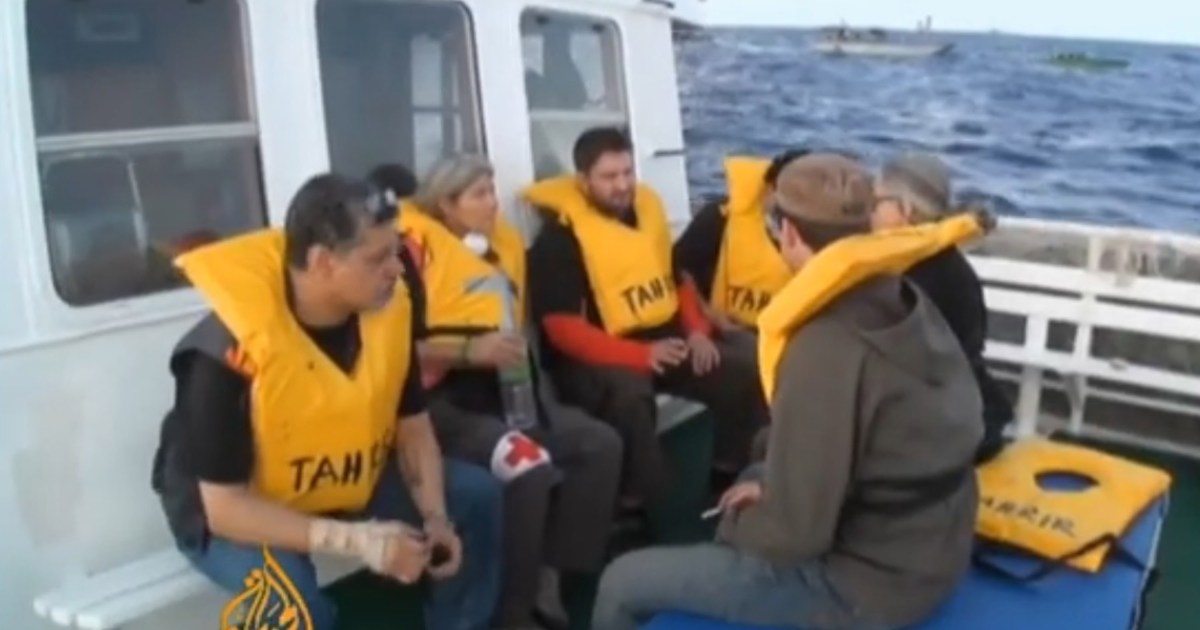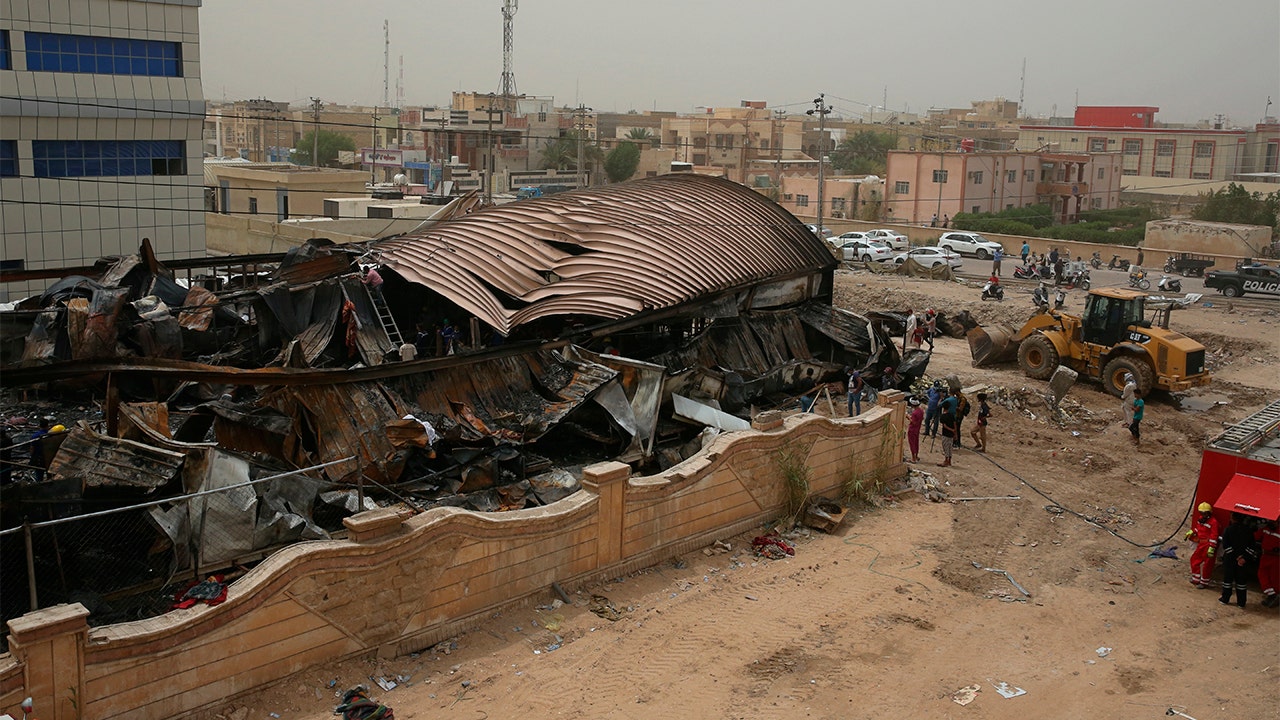The little boat that could | Opinions
It is a rare thing that Israel is forced to admit that it has broken the law and has to pay for it.
We and, of course, the Palestinians well know that the so-called “international community” has, since Israel’s engineered inception, allowed it to act with outrageous impunity – despite its long and incriminating record.
So, when the news arrived last week that a dogged bunch of Canadians won a belated, but oh so satisfying, victory against an arrogant government that threatened them, kidnapped them and stole a boat – brimming with medicine and solidarity – destined for occupied Gaza, it was a happy day indeed.
Beyond one lonely story, that unexpected triumph – hard and patiently won – did not attract a scintilla of attention from Canada’s establishment media which, like its governing elites, is stubbornly conditioned to side unquestionably with Israel even when it threatens, kidnaps and steals from Canadians, let alone besieged Palestinians.
“We are very pleased,” David Heap, a linguistics professor and one of the Canadians who had been on board the Tahrir vessel – “liberation” in Arabic – told me in a recent interview.
Heap and his many comrades in cause should be. Together, they have succeeded where a succession of craven Canadian governments – Conservative and Liberal alike – has failed: To hold the state of Israel to a real, not rhetorical, measure of account for its lawless conduct.
Heap and compassionate company set off for Gaza from a Turkish port on the Tahrir on November 2, 2011. An Irish vessel joined them on the humanitarian mission.
Their aim: to deliver $30,000 in medical supplies not only as a tangible expression of support for too often forgotten Palestinians but as a deliberate challenge to Israel’s grinding and illegal blockade of Gaza and its people.
Two days later, the two-boat flotilla approached Gaza. Still in international waters, the Tahrir was surrounded by an armada of warships in a predictable show of Israeli intimidation and force.
Soon, a platoon of heavily armed Israeli commandos – their faces hidden – clambered onto the boat after using water cannons on its peaceful, unarmed crew and Canadian volunteers.
“We were asked to identify our course. [We] said: “Our course is the conscience of humanity”. They asked what’s your final destination? We said: “The betterment of humankind,” Heap recalls, proudly.
Given the danger, the Greek captain and Canadians complied, although Heap was tasered for refusing to abandon the captain’s cabin housing the ship’s wheelhouse.
“It’s no fun,” Heap said.
Later, the now-hijacked Tahrir was compelled to change course and head for the port of Ashdod. The abducted crew and volunteers were searched and jailed and the cargo stolen.
“We never saw any of it again,” Heap said.
Local Canadian diplomats helped. But Canada’s Conservative then-foreign minister, John Baird, blamed the Canadians, not Israel, for their kidnapping and the theft of the Tahrir.
No one was surprised that Baird and his boss, Prime Minister Stephen Harper – both evangelical apologists for Israel – would in effect abandon citizens they were duty-bound to protect in their near-slavish defence of Israel.
“They simply parroted Israel’s diplomatic lines,” Heap said. “We were warned not to go… they weren’t working in [our] interests and certainly not in the interests of international law.”
Heap and several other Canadians were charged – absurdly – with “entering [Israel] illegally” and deported to Canada after being held for six days in the immigration wing of Givon prison, near Ramla.
Undeterred, in January 2012, Heap and his colleagues had lawyers file a claim in Israel to have the Tahrir and the medical supplies returned to their rightful owners.
Israel acknowledged receiving the paperwork. It promptly forgot about the pesky, troublesome Canadians and their claim.
“At that point, we didn’t expect to get any semblance of justice,” Heap said.
His understandable scepticism was fuelled by the knowledge that Israeli gunboats have routinely opened fire and damaged the nets of Palestinian fishers without consequence.
Then jurisprudence intervened.
The owners of a Swedish boat, seized by Israel in international waters en route to Gaza with much-needed aid in 2012, took the Israeli Ministry of Defense (MOD or “ministry of occupation”, as Heap calls it) to court, arguing that it had skirted the law when it commandeered the ship.
Apparently, the MOD had failed to notify the country’s maritime court in Haifa and the Swedes that it had snatched the vessel.
In 2017, the Swedes prevailed in an out-of-court agreement that included recouping a sizeable chunk of their costs. This set a crucial precedent that resurrected the Canadians’ dormant claim.
Turns out, the Israeli MOD had also failed to make a “declaration of seizure” with the maritime court and inform the Canadian-Israeli owner that it shanghaied the Tahrir, as the law requires.
Heap and party hired the same enlightened Israeli lawyers who had acted for the Swedes to make another bid to recover some money from the MOD.
Ten years after it stole the Tahrir, the Israeli MOD – no doubt grudgingly – waved what amounted to a legal white flag and paid close to $150,000, about half of the mission’s total costs.
“I don’t know why it took so long,” Heap said. “But the state [of Israel] knew that it had to pay, eventually.”
For Heap, the long-sought-after proffer is important for a number of reasons.
First, the money will help underwrite existing and future campaigns to draw the world’s notice to and try to lift the inhumane blockade that continues to deny livelihoods and freedom of movement to imprisoned Palestinians.
“The real issue is whether Palestinians have freedom of movement into, out of and around their lands, which is a protected right under the Universal Declaration of Human Rights,” Heap said. “We are simply trying to bring attention to it.”
Second, the settlement is an implicit admission by Israel that it committed piracy when it “seized” a foreign-owned boat in international waters – a crime that remains unpunished.
“If you abduct people who are headed to one country and take them to another country against their will, that’s clearly an offence under international law and none of the people responsible for that have faced any kind of justice,” Heap said.
Heap knows that the blunt, arbitrary violence he and other Canadians experienced on their aborted journey to Gaza in late 2011 cannot compare with the brutal, systemic persecution Palestinians have endured for generations.
“The blockade of Gaza is collective punishment,” Heap said.
To ease that disfiguring burden, some of the settlement money went to the purchase and delivery last week of an ambulance to Gaza.
Heap and the other Canadians who risked much to champion the plight of Palestinians should be applauded for their determination to right the ugly wrongs others can see but, out of indifference, ignore.
Their patience and resolve are an example to an ever-rising number of Canadians who, in a principled break from their complicit leaders, are ready to make sure that one day Palestinians will overcome.
The views expressed in this article are the author’s own and do not necessarily reflect Al Jazeera’s editorial stance.




